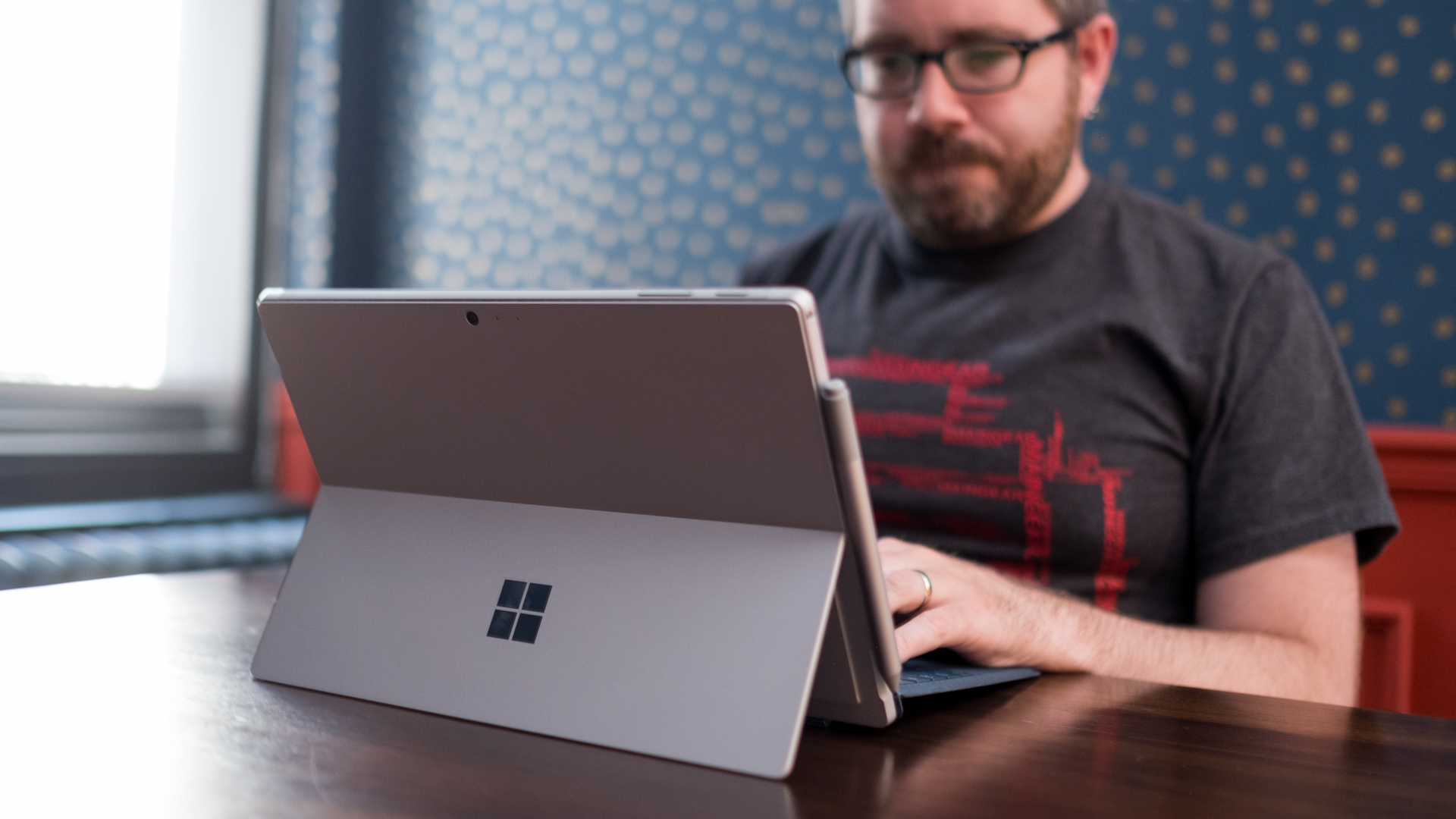Are Microsoft’s Surface devices starting to pose a real threat to MacBooks?
Survey finds more consumers are ‘proud’ to be seen with a Surface

Sign up for breaking news, reviews, opinion, top tech deals, and more.
You are now subscribed
Your newsletter sign-up was successful
Microsoft has always been keen to promote its Surface range when it comes to comparisons with Apple’s MacBooks, for obvious reasons, but now it appears that users may be coming round to hold this opinion in some measure, as well – at least according to a new piece of research.
A survey of some 1,300 consumers in the US from Creative Strategies questioned folks about their PC preferences at home and work, and found that 72% of those who use one of Microsoft’s convertibles in the office wanted to use the hybrid all the time (i.e. when they’re at home as well).
The interesting point here is that when asked the same question about MacBooks, only 65% wished to use the notebook at home. Meaning Microsoft is edging out Apple in terms of overall popularity here.
Interestingly, Microsoft also held the lead when consumers were questioned about which machine they were ‘proud to be seen with’ in public, with Surface devices netting 77% compared to 62% for Apple.
Okay, so this is just a couple of specific questions picked from a single survey – highlighted by Microsoft here – but it’s a somewhat surprising and interesting result nonetheless.
It certainly points to Microsoft having had some success when it comes to pushing the Surface line, from the likes of PR efforts to convince folks that MacBooks are ‘disappointing’, to landing product placements of its hybrids in various TV shows and films (we’ve been noticing a lot more Surface devices lately, where there used to be only Apple logos not so long ago).
Power of productivity
According to the survey, the main strengths of Surface devices are perceived to be in productivity, where the hybrids scored 8% higher when it came to ‘empowering users to be more productive’ compared to Apple’s laptops. The two brands were roughly equal when it came to empowering creativity.
Sign up for breaking news, reviews, opinion, top tech deals, and more.
The research also found that folks who are considering replacing their traditional notebook with a 2-in-1 machine favored the Surface Pro over Apple’s iPad Pro to the tune of 11%.
Lest we get too carried away with the Microsoft trumpeting, it should be noted that Creative Strategies also asked consumers who they viewed as the leading laptop brand – and in this case Apple was still a convincing winner with 46% of respondents. Microsoft’s Surface range was in second place some 20% behind.
Folks chose Apple simply because of the prevalence of its notebooks – they’re everywhere – and because Apple has always been the ‘most aspirational brand’.
Interestingly, when the respondents who chose the Surface were asked why they did so, 22% said it was because they felt Microsoft was the only rival that could compete with Apple.
The report concedes that Surface sales are obviously still a long way shy of the MacBook, and it concludes: “So, the moral of the study is that while overall sales might not ring any alarm bells for other PC manufacturers, Microsoft Surface quietly established itself as the most aspirational brand in the Windows ecosystem as well as the only brand able to compete with Apple.”
In fact, Surface sales have been rather up and down over the past year, and were flat in Microsoft’s most recent earnings report. But, given the apparent slow-but-sure turnaround in public perception of the Surface – despite last year’s PR problems which revolved around reliability – the company will doubtless be hoping for more upswing as 2018 unfolds.
Via MS Power User
- One of Microsoft’s Surface models is on our list of best laptops
Darren is a freelancer writing news and features for TechRadar (and occasionally T3) across a broad range of computing topics including CPUs, GPUs, various other hardware, VPNs, antivirus and more. He has written about tech for the best part of three decades, and writes books in his spare time (his debut novel - 'I Know What You Did Last Supper' - was published by Hachette UK in 2013).